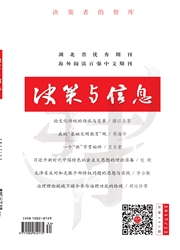

 中文摘要:
中文摘要:
投票机制是国际组织进行决策的重要机制。本文以IMF在2008年份额与投票权改革前和2010年改革后的权力分配方案为基础数据,通过对其成员国在改革前后决策权的变化进行比较证实,改革的确有助于IMF成员国决策权差距的缩小。如果采取70%多数票获胜规则将意味着美国绝对否决权的丧失。此外,测算结果还显示,投票权比重变化与决策权变动之间并没有严格对应关系。投票权比重的上升并不一定意味着决策权的上升。投票权比重不同的国家,其决策权仍可能相同。
 英文摘要:
英文摘要:
Voting procedure is an important mechanism for public choice in international organizations. This paper measures and compares [MF member countries' voting power before the 2008 reform and after the 2010 reform on the basis of datasets on IMF quotas and voting rights distribution provided by IMF. Our study verifies that IMF's quotas and voting rights reforms do help to reduce the voting power gap among member countries. The 2008 and 2010 reforms produce a greater improvement in emerging members' voting power under the 70 percent majority rule than the 85 percent rule; the 70 percent majority rule means the United States would lose its absolute veto. Moreover, the paper disproves the underlying assumption that regards a member's voting power as proportional to its voting rights. Countries with different amounts of voting rights can still have the same voting power.
 同期刊论文项目
同期刊论文项目
 同项目期刊论文
同项目期刊论文
 期刊信息
期刊信息
